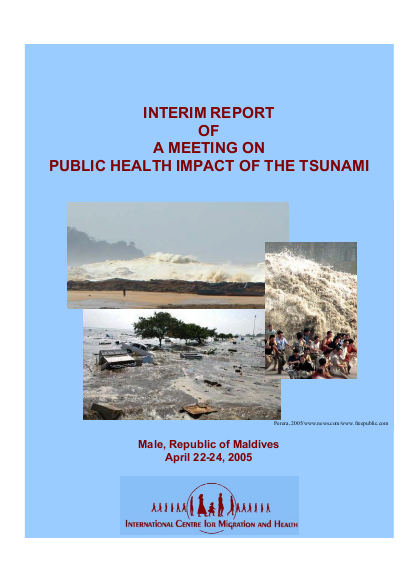
The 9+ Richter-scale earthquake that occurred off the coast of Northern Sumatra on December 26, 2004 triggered one of the greatest human disasters and international relief efforts in recent history. As many as 180’000 people are estimated to have been killed and at least 1,633,000 people were displaced in the countries that were hit by the Tsunami. The humanitarian relief operation that followed brought over 660 countries, agencies and NGOs together in one of the largest humanitarian operations ever seen. Natural disasters affect people and communities in complex ways. In the case of the Tsunami disaster, the impact will be felt for years to come and the demographic and socio- economic profile of the regions involved may never be the same again. How and to what extent the public health implications of the Tsunami will continue to affect the people of those regions is not clear, but unless the evolution of these public health aspects is understood in a timely fashion it will be difficult to prepare longer term strategies to assist people and prepare for any new disasters in the future. From 22-24 April a group of public health experts from Indian Ocean countries and elsewhere met in Male, Republic of Maldives, to present country reports, review what is already known, what lessons are emerging, and what should be done to better understand and respond to the needs of people and prevent and mitigate any future natural disasters in the region. This interim report of the proceedings will be followed by a longer report that will include the country reports and more discussion about next steps.